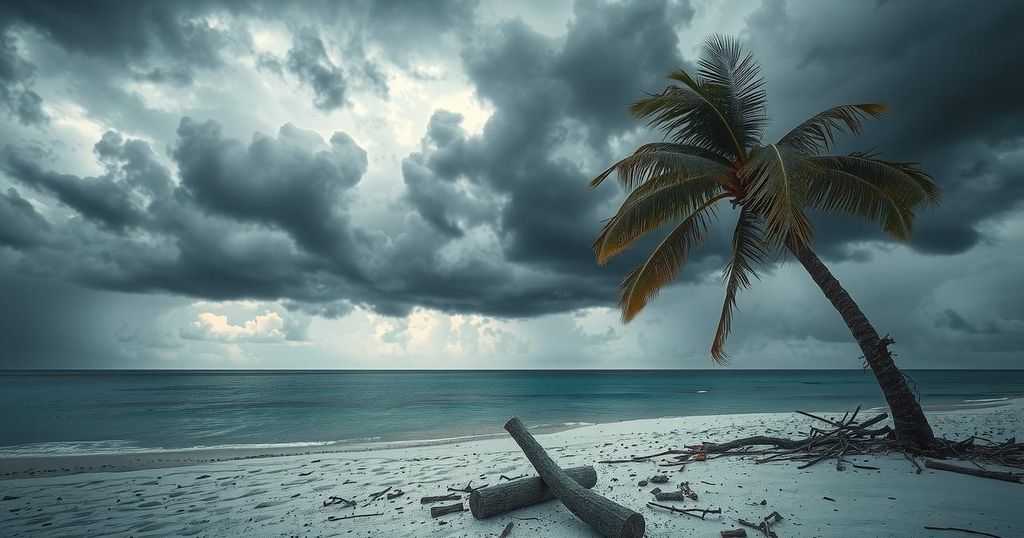Madagascar Faces Challenges from Cyclones Elvis and Faida

Madagascar is recovering from Cyclone Elvis, which killed five, while bracing for Cyclone Faida expected to hit on February 4. Elvis caused lightning-related fatalities in Vohibato and brought heavy rainfall to the southern part of the island. Faida, with winds of 65 km/h, threatens several regions. Prior storms, including Dikeledi, have demonstrated the devastating impact of climate change on cyclone frequency in the area.
Madagascar is facing the dual challenge of recovering from Cyclone Elvis, which claimed five lives, and preparing for the imminent arrival of Tropical Cyclone Faida. Elvis caused fatalities primarily due to lightning incidents in the Vohibato district, with an additional two injuries reported. The cyclone originated in the Mozambique Channel on January 28 and impacted the southwestern coastline the following day, bringing significant rainfall, particularly to Toliara and Taolagnaro, where levels reached 196 mm and 178 mm, respectively.
As the region deals with the aftermath of Elvis, Tropical Cyclone Faida, having formed on January 23, is predicted to make landfall on February 4 in northern Madagascar. Faida’s current maximum sustained winds stand at 65 km/h (40 mph) and are expected to increase. Its trajectory is set to affect several regions, including Analamanga and Atsinanana, as it continues to track westward.
Previously, Madagascar also suffered from Tropical Cyclone Dikeledi, which resulted in significant flooding and landslides, claiming at least ten lives. The cyclone notably disrupted wildlife, inundating a tortoise sanctuary. Rescue efforts saved over 10,000 tortoises that were swept away. Climate change is exacerbating storm frequency in the region, according to meteorological experts.
In response to these catastrophic events, regional scientists and economists are collaborating to enhance meteorological forecasting techniques for Southern Africa. The U.K. Met Office has indicated that climate change will lead to increased storm occurrences in the area. The last few months have shown a significant elevation in the frequency and intensity of cyclonic activity affecting Madagascar and its neighboring regions.
Tropical cyclones are severe weather systems that form over warm ocean waters and can cause catastrophic damage upon landfall, including loss of life, property destruction, and ecological disruptions. Madagascar is particularly vulnerable due to its geographical location in the Indian Ocean and recent trends indicate an increase in cyclone activity attributed to climate change. Proper forecasting and preparedness measures are critical in mitigating losses associated with these natural disasters, which have significant impacts on both human populations and biodiversity.
Madagascar is currently coping with the aftermath of Cyclone Elvis, which has resulted in fatalities and injuries, while simultaneously preparing for the anticipated impacts of Tropical Cyclone Faida. The increase in cyclone activity underscores a growing threat due to climate change, highlighting the need for improved forecasting and emergency preparedness in the region.
Original Source: news.mongabay.com







